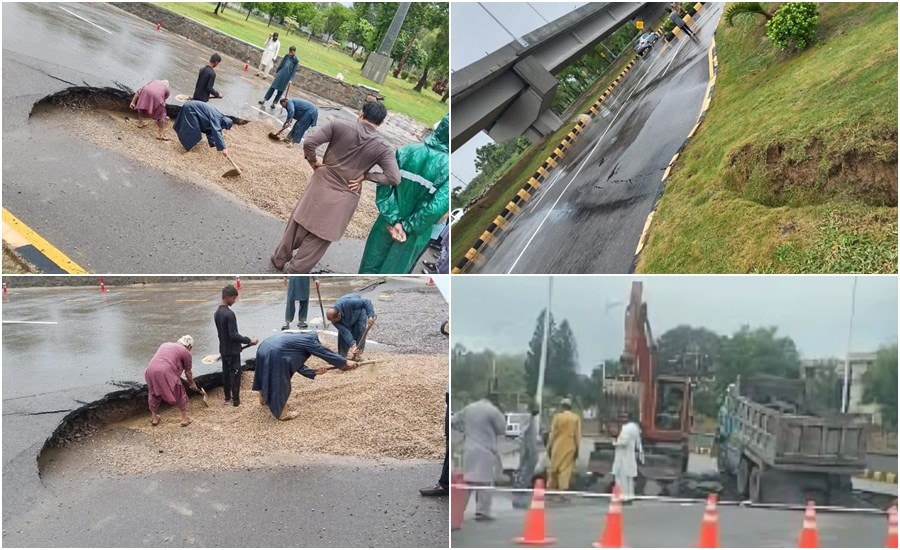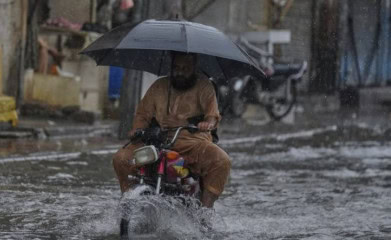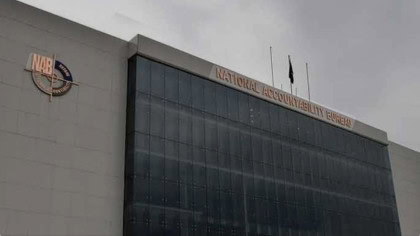ISLAMABAD – Islamabad’s newly inaugurated 9th Avenue underpass collapsed under pressure, barely months after its launch as twin cities and parts of Punjab bore the brunt of massive rainfall.
After very first spell of monsoon rain, multi-million-rupee structure is showing cracks, water leakage, and dangerous road deformities, leaving citizens in shock and demanding immediate answers.
The underpass connecting Sectors H-9 and G-9, was meant to ease traffic jams. Instead, it turned into flooded deathtrap, with large pools of water forming inside and commuters navigating through chaos. The drainage system appears to have completely failed, turning what was promised as a modern roadway into a soggy nightmare.
Social media exploded with anger as pictures and clips of the damaged tunnel went viral. Masses slammed authorities, calling situation unacceptable and a blatant case of negligence.
Interior Minister Mohsin Naqvi inaugurated the underpass with promises of a “signal-free Islamabad.” Now, that ribbon-cutting ceremony seems like a distant farce as the public raises questions.
All eyes are now on the Capital Development Authority (CDA) and the unnamed construction firm that carried out the work. Urban development experts are already calling for forensic audits, third-party inspections, and even legal action if corruption or shortcuts are discovered.
Islamabad, Rawalpindi Rains
Punjab declared state of emergency and imposed Section 144 across the province after heavy monsoon rains caused severe flooding, killing at least 61 people and injuring 268 in the past 24 hours.
Maryam Nawaz led Punjab government also banned bathing in rainwater, swimming, and unauthorized boating to prevent further casualties. Chief Minister Maryam Nawaz urged the public to cooperate with authorities as rescue operations, aided by the Pakistan Army, continue across affected districts.
Rescue 1122 teams have been deployed in multiple areas, including Jhelum and Rawalpindi, where a flood alert was issued after water levels in Leh Nullah exceeded critical limits. Water levels in major reservoirs like Tarbela and Khanpur have also risen significantly. So far, NDMA reported 178 deaths across Pakistan since June 26, with Punjab being the worst affected. Urban flooding is expected to continue, though the rain is likely to subside within 48 hours.



















